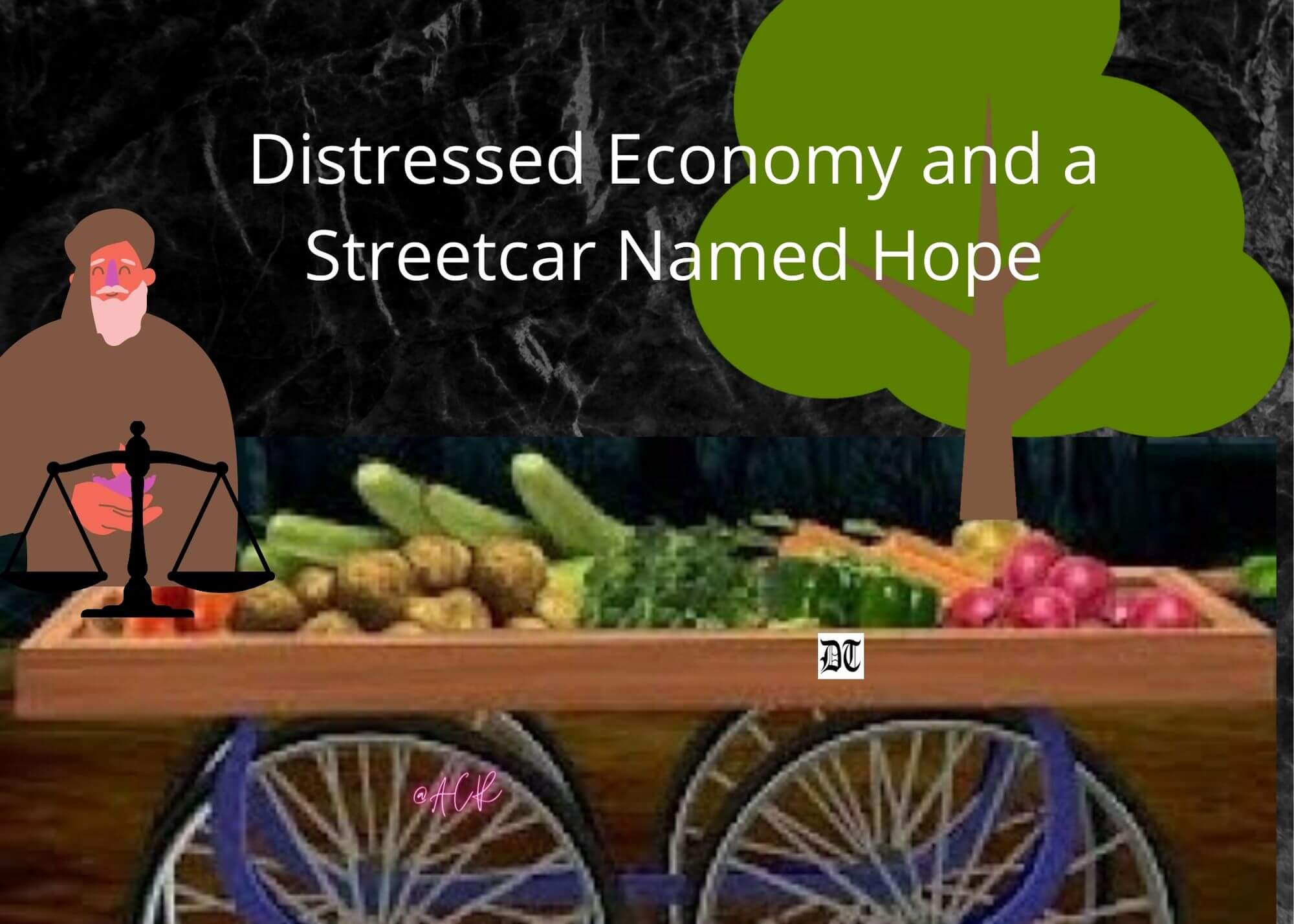Shyamal talks of sabjiwala and the economy in the post-pandemic situation. An exclusive for Different Truths.

It`s late morning. I am in a hurry to come back home after a regular walk as my sabji vendor with his vegetable cart is expected anytime at my door. Still, on my way in the midway, I come across my sabjiwala; smilingly he tells, “Babuji don’t rush! Bhabiji has picked her daily needs, of course, she has been hesitant, but I suggest I will collect the next day when I meet Babuji.” As soon as I open my purse, he politely responds, “No hurry, my dues are safe with you.”
Now, with a cup of tea relaxing over morning newspaper, I glance at the headline, FM announces stimulant sops through financial packages for the rundown economy of the country, pegging at Rs. 6.28 lakh crore. These include a government guarantee for healthcare investment of Rs. 1.1 lakh crore, for microfinance borrowers Rs. 7500 crore – spread over the following two to four years.
Invariably, the guarantee package is aimed to boost credit offtakes for MSME, small entrepreneurs, and health care facilities…
Invariably, the guarantee package is aimed to boost credit offtakes for MSME, small entrepreneurs, and health care facilities in small centers. As for direct relief, there is the distribution of food grains as well as an extended spread of Broadband services in all panchayat areas.
Sabjiwala
Suddenly, my wife speaks from the kitchen, “Today, I purchased sabji on credit. Pay Sabjiwala tomorrow.” I responded, “I know.” Instantly, I wonder why the sabjiwala did not ask for the payment when we met.
It is obvious, if he settles dues, tomorrow I might purchase from another vendor, and he loses the expected demand the next day. During post-pandemic lockdown there has been a tremendous fall in demand for all consumables, even domestic necessities, as people lost disposable surpluses. The business and the market, with whatever level of sale or manufacture it may sustain, get stalled for want of effective demand or lack of it due to a huge fall in consumer income.
Lockdown has caused a negative impact on the general livelihood of millions…
Lockdown has caused a negative impact on the general livelihood of millions, including migrants, small vendors, footpath hawkers, and small eateries. Even work from home reduces salary/prerequisite in many establishments. Small towns or rural areas reeling under demonetisation become now in an earning-frozen state.

Recessive Economy
The escape route from a slowly recessive economy lies in the push to demand through increases in disposable money. Only in the MSME sector, holding a 30% share in our GDP, and nearly 60 million employment. But in the prevailing situation, it has become worse.
For small businesses, PSB sponsored Mudra scheme, earlier introduced, there has been an increasing rise in defaulters…
For small businesses, PSB sponsored Mudra scheme, earlier introduced, there’s an increasing rise in defaulters, 5 +% of loan outstanding Rs. 382,437 cr. approx.
Our official current schemes with inbuilt guaranteed extensions are taking care of supply pitfalls but effective demand through increases in purchase capacities available with the Aam Janta is stagnating.
That’s why my vegetable vendor is assured of payment from Babuji, but he needs to safe keep his next day demand source safe i.e., my wife’s daily needs – his survival hope.
Visuals by Different Truths






 By
By
